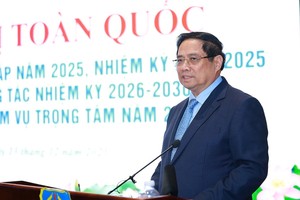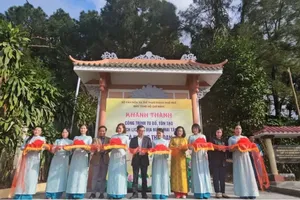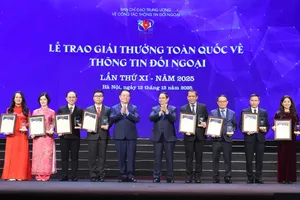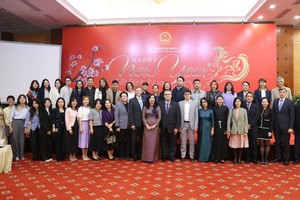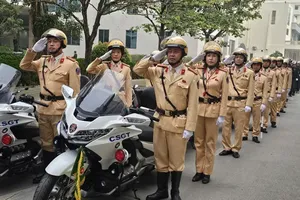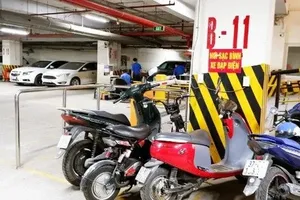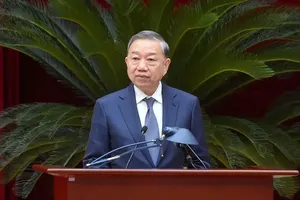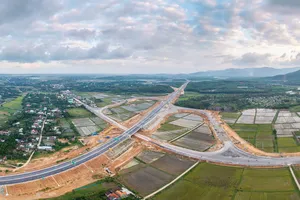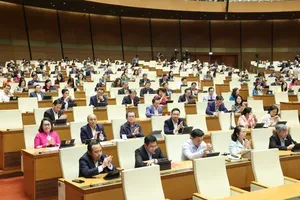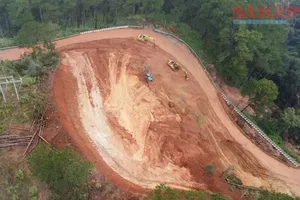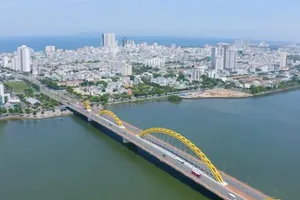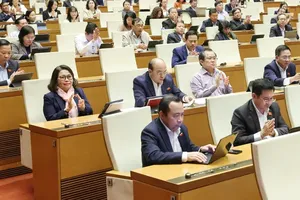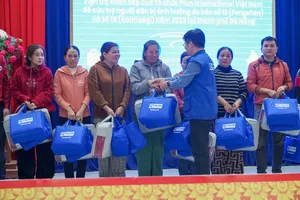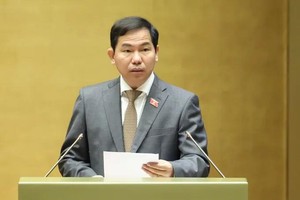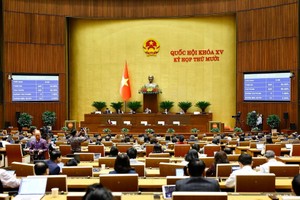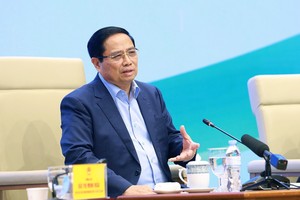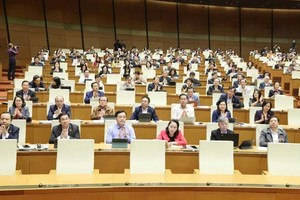Permanent Deputy Prime Minister Nguyen Sinh Hung has admitted power supply failed to meet demand although the power industry grew between 13-15 percent yearly and promised investment in nuclear and wind power as a solution.
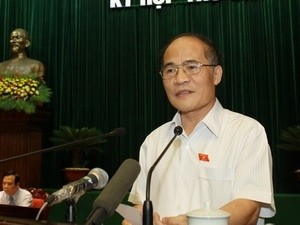
Deputy PM Hung told deputies to the National Assembly at a hearing session on June 12 of three major causes to the widespread outages of power, which aroused concerns from deputies nationwide such as Le Van Cuong from the central province of Thanh Hoa and Nguyen Van Thoi from the northern province of Thai Nguyen.
“Major causes include the industry’s delay in investment projects and customers’ unthrifty use of electricity while now is the dry season with water sources almost drying up, causing difficulties to the hydro-electricity plants which make up 34 percent of the gross output,” Deputy PM Hung explained.
He pledged to push up investments in generation sources, considering nuclear and wind power projects.
“The national energy security will be put under the Prime Minister’s personal direction,” emphasized the Permanent Deputy Prime Minister.
Leasing woodland to foreign investors for afforestation was another burning issue at the hearings as some licensed projects have been found having problems.
“The Government has asked responsible ministries, industries and local authorities to inspect these projects and evoke licenses if they are found in violation of law,” Mr. Hung said.
He however added all punishments should go in line with law to ensure a level playing ground for both domestic and foreign investors.
Agriculture and forestry, especially processing industry, is a sector in need of foreign investments in order to restructure the national economy, Mr. Hung concluded.
In response to Hanoi deputy Pham Thi Loan’s question on the behind-schedule equitisation of the State-owned enterprises (SOEs), Deputy PM Hung emphasized that the process should be done carefully to achieve the most effective results.
All SOEs are required to shift into joint-stock companies or limited liability companies on July 1, 2010 at the latest, which, the Deputy PM admitted, is so far definitely out of reach.
“Equitisation is aimed at selling the State stake to raise investments from other economic sectors. Those companies, of which the State sees it not necessary to hold stake, will be fully equitised. It (the State stake) is the national property so the process should be carried out carefully to avoid losses emerging from quick selling at cheap prices,” he explained.
He added that from now till July 1, equitisation will continue with those companies which are able to evaluate the share prices.
Those companies which are not target to equitisation will shift into one-member limited liability companies and operate in line with the Enterprise Law from July 1. State-owned economic groups and corporations will operate under the Government decree along with the Enterprise Law, Mr. Hung said.
Concluding the NA hearings, National Assembly Chairman Nguyen Phu Trong said that the hearings managed to address voters’ concerns as reports on the examination of voters’ petitions were delivered at the session, showing responsibility of deputies and cabinet members.
